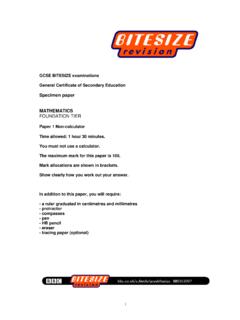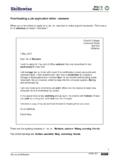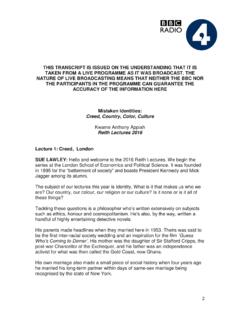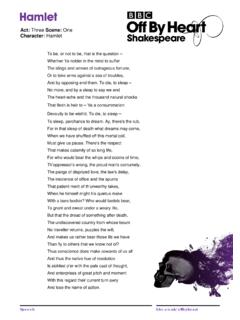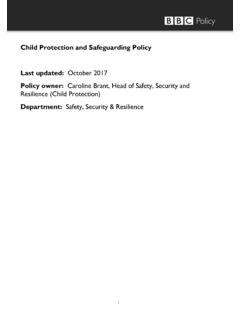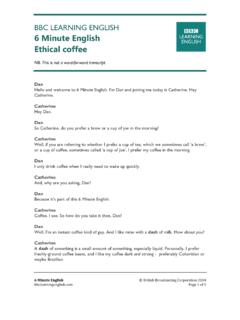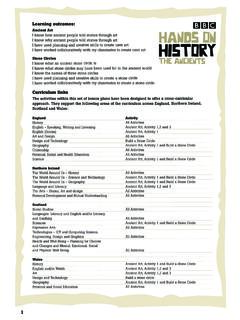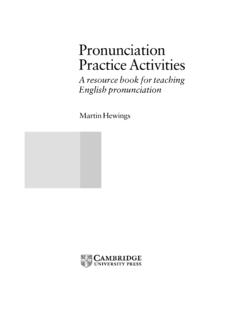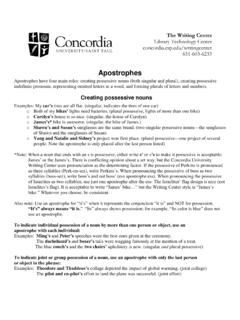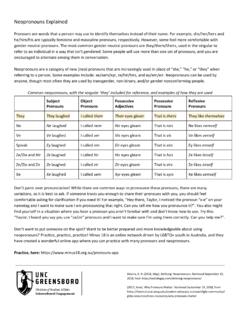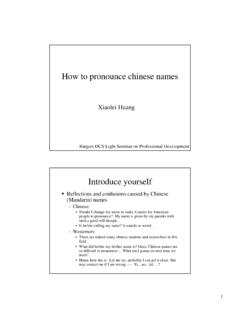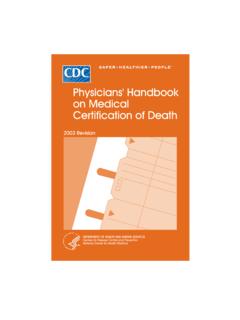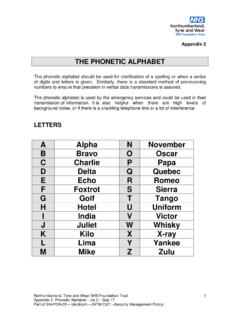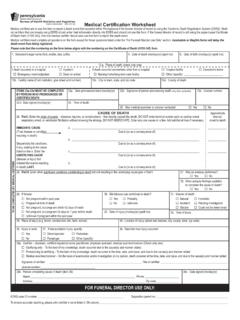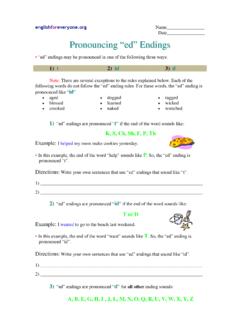Transcription of BBC Learning English
1 BBC Learning English Grammar Challenge British Broadcasting Corporation 2007. Nuala's Grammar Explanation Pronunciation: 'ed' endings In the past simple regular verbs end in 'ed' and there are three different ways of pronouncing these two little letters - / d /, / d / and / t /. First let's look at the / d / ending. Regular verbs that end in the sound / t / or / d /, in the past simple the 'ed' ending is pronounced / d /. Here are some examples: Examples: start - started invite invited want wanted need needed decide - decided The pronunciation of the 'ed' ending for other regular verbs in the past simple depends on whether the last sound of the infinitive of the verb is voiced or not. Regular verbs that end in voiced sounds will have / d / as the pronunciation of the 'ed' ending in the past simple. Here are some examples. Examples: smile - smiled turn - turned love - loved seem - seemed Finally, regular verbs that end in unvoiced sounds will have / t / as the pronunciation of the 'ed'.
2 Ending in the past simple. Here are some examples. Grammar Challenge BBC Learning English Page 1 of 2. BBC Learning English Grammar Challenge British Broadcasting Corporation 2007. Examples: jump - jumped kiss kissed wash - washed look - looked watch watched So, to recap. There are three different ways to pronounce the letters '-ed' for regular verbs in the past simple and the way to choose how to pronounce them depends on the final sound of the infinitive. That's all from me, good luck with your grammar challenge! Find out more / d / /d/ /t/. infinitives that end in the infinitives that end in a infinitives that end in an sound / t / or / d / voiced sound unvoiced sound needed lived shopped hated chilled picked dated enjoyed wished seated tried crunched All vowel sounds are voiced. You can find more information about which sounds are voiced and unvoiced on the Pronunciation Tips section of the website: Grammar Challenge BBC Learning English Page 2 of 2.


